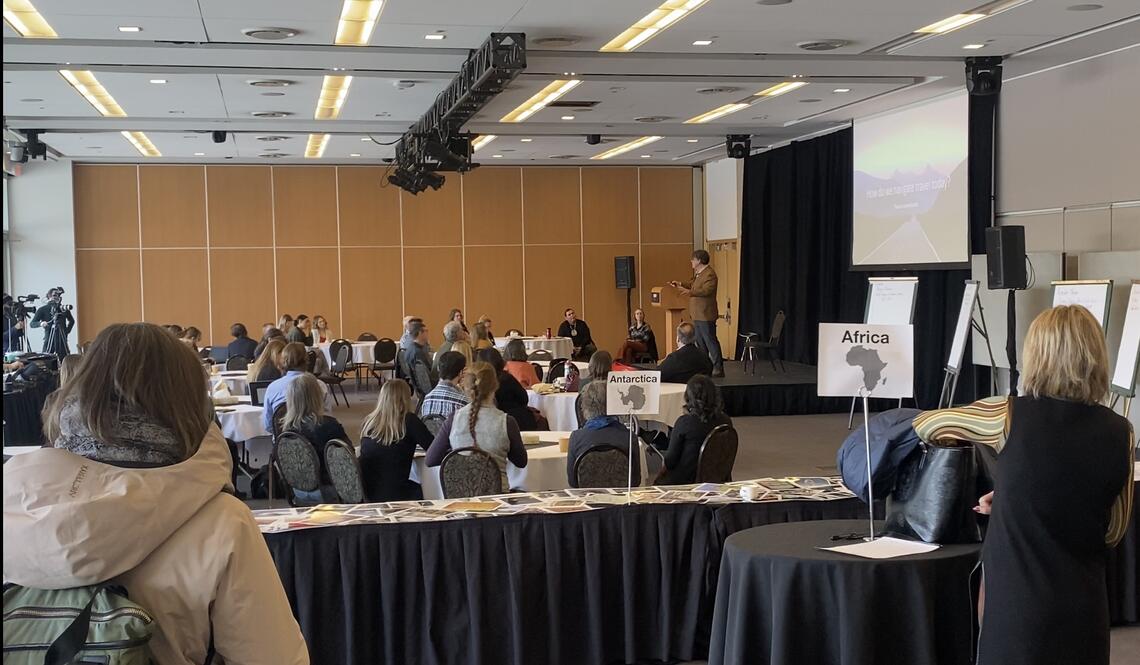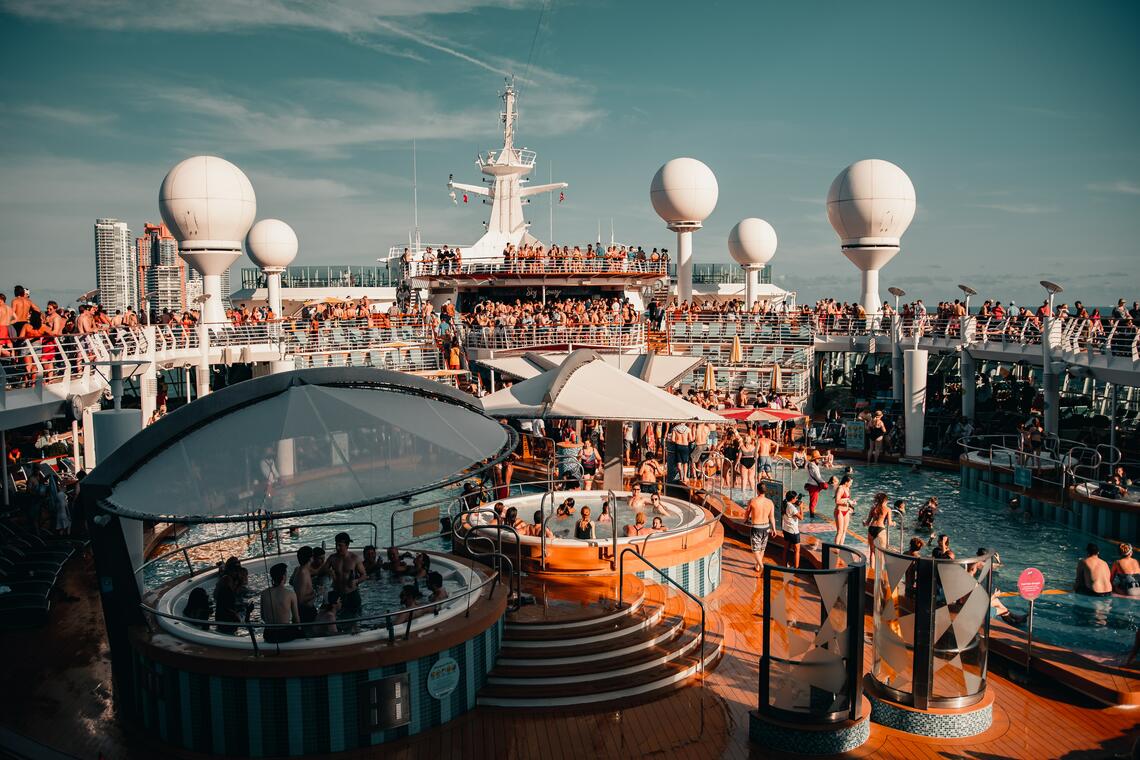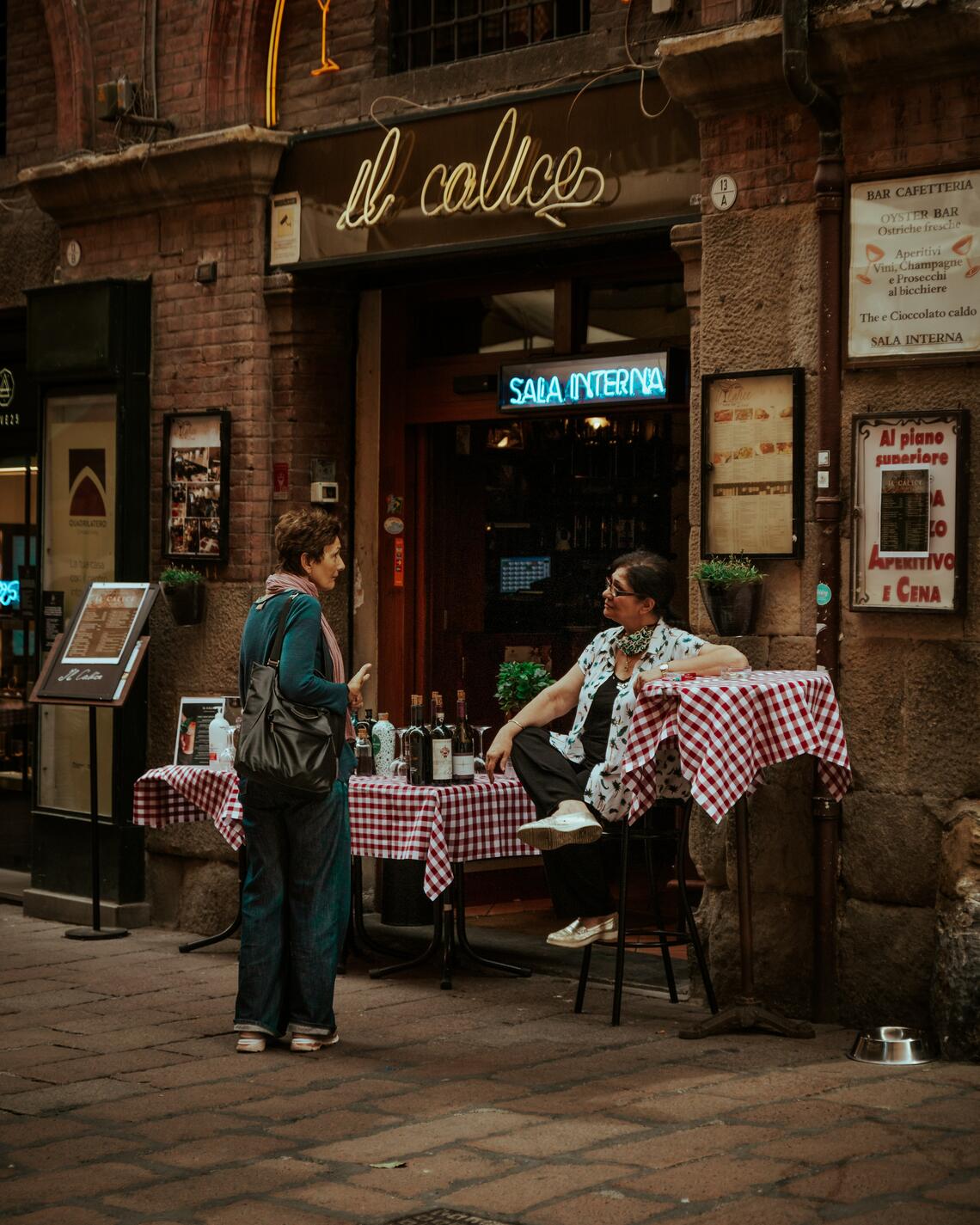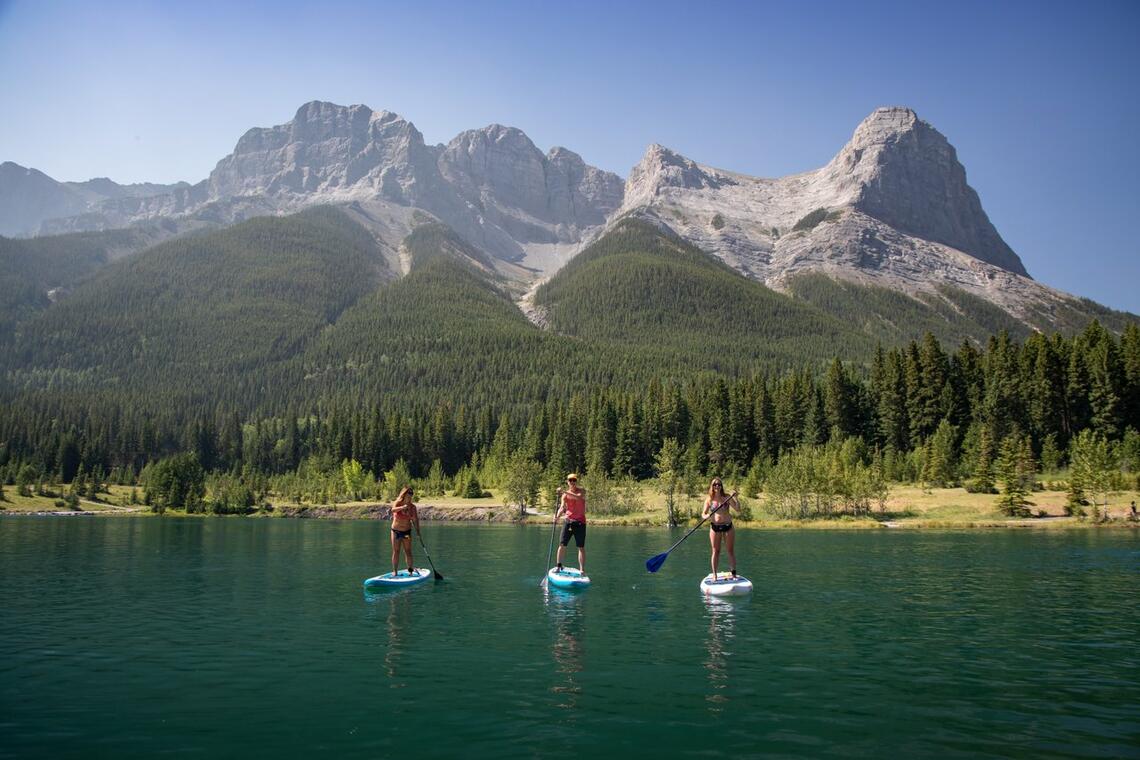April 10, 2023
Move Over, Whirlwind Holidays. Purposeful Travel has Arrived

Once accounting for 10 per cent of all jobs worldwide, the tourism industry was decimated by the COVID-19 pandemic. Between March 2020 and March 2022 — when much of the world held its breath and stayed home — the industry shed some 121 million jobs and reported losses of $3.4 trillion, according to the World Travel & Tourism Council.
But with the rapid loosening of restrictions over the past year, the sector is resurging with a vengeance and is now expected to return to 2019 levels by the end of 2023. In the aftermath of COVID, experts wonder, has a new type of traveller emerged?
Could the frenetic days of “it’s Tuesday, it must be Belgium” be waning? Today’s traveller (well, let’s be honest . . . some travellers) may now factor in climate-change considerations, examining their travel footprint as well as social activism and human connections. Admittedly, that last aspect is a niche market, but it’s one that travel experts say is poised to boom.
In fact, it was precisely this topic that was covered at a recent forum at Banff Centre dubbed the Purposeful Travel Summit, the brainchild of Dr. Joe Pavelka, PhD’10, who recently ended a 27-year run teaching a business course, Leisure Tourism in Society, at the University of Calgary.
The forum’s keynote was delivered by legendary guidebook author Rick Steves who, for one, hopes the lull has gifted people the time to question how and why they travel.

Dr. Joe Pavelka, PhD’10, addresses first summit on purposeful travel, recently held at Banff Centre
“We have choices,” the travel guru said during his online address. “North Americans have privilege which we should use to ensure we travel in a way that we become better citizens of our planet.”
Why Purposeful Travel? Why now?
Tread lightly, venture off the beaten path, connect with community and patronize locally owned businesses — we’ve heard these tenets before, couched around other movements such as slow tourism, sustainable travel, eco-tourism and responsible travel. Now dubbed “purposeful travel,” they are all, in part, seen as corrections to over-tourism.
For Steves, whose company, Rick Steves’ Europe Through the Back Door, had to cancel trips for 24,000 tourists during the pandemic, poses questions he’d like all travellers to ponder: (1) how do we connect with another culture that is respectful; (2) how do we avoid seeing cliches on stage; and (3) how do we invest in things that minimize our impact on foreign lands?
In a world increasingly captured by social influencers, apps, selfie sticks and crowds — how do you get someone to be present and engaged with a local, rather than with their phone or Facebook group?
“It’s a tough one; a conundrum, really,” admitted Pavelka. “When you consider intention and purpose need to play an increasingly important role in global tourism’s future, as it can no longer be determined by the largest players [i.e., the cruise industry, for one], how do you get an influencer to find that appealing? Steves could pull it off, but these goals on most social-media feeds would be perceived as boring.”
How to be a Responsible Tourist
Size and impact are exactly what alum Fergus MacLaren’s talk on climate change and world heritage sites addressed during the Summit.
Zooming in on Venice, Lunenberg and various world heritage sites in Ghana, MacLaren, MEDes’95, examined the impact that mass-tourism has played on these destinations. He pointed out how, in a plea for change, the president of the International Council on Monuments and Sites (ICOMOS, an advisory board of the UNESCO World Heritage Committee) hopes visitors will be more mindful on where and how they travel. Let us learn from port cities, such as Dubrovnik and Barcelona, suggested MacLaren, referring to residents wanting to halve the number of cruise tourists during peak summer season, citing air pollution, ridiculously crowded streets and sky-high prices as the fallout felt by the presence of these mega-“floating hotels.”

When life on the high seas arrives in a port, thousands of tourists disgorge, impacting the lives of local residents . . . and not always is a positive way.
“Consider the transportation you choose,” said MacLaren, whose capstone project at what is now the School of Architecture, Planning and Landscape involved developing a preservation plan for the French Colonial quarter in Hanoi, Vietnam. “What are the emissions created from your travel while there, or from the visitor economy’s carbon output from hotels, transport and food services? And choose public transit, cycling or walking to reduce your carbon output.”
A Sustainable Speed
Responsible travel, sustainable tourism — call it what you may, but its roots stem from “slow travel,” an offshoot of Italy’s slow food movement that began in 1986. Protesting the arrival of McDonald’s in Rome, the slow food movement was meant as a counterpoint to fast food, aiming to promote local dishes and traditional techniques. Today, the organization behind it has more than 100,000 members that span 150 countries.
By extension, slow tourism subscribes to practices that are sustainable, local and experiential, explains Salvatore Basile, Canada’s manager for the Italian National Tourist Board, adding the Board recently released a list of what it calls responsible actions for tourists. The list includes bringing a reusable water bottle; looking for accommodations that have eco-friendly practices such as using renewable energy and reducing water waste; turning off lights and air-conditioning when leaving a hotel room; eating locally; and supporting the local economy.

In Italy, people take time to have an espresso and chat with locals and tourists alike at many a cafe
As for travel trends or behavioural shifts, Basile says Italy is seeing more tourists opt to stay in small rural villages and take a train into urban metropolises such as Rome and Florence. “You can be in a beautiful historical village where you will feel the vibe of local life and be able to almost forget you are a tourist, yet you are only a short train ride away from all the major sites,” he says. “In the next decade, we believe that tourism will be more and more experiential and sustainable.”
Some, like Pavelka, say the evidence is all around us. “People want flexibility at work,” said the man who’s taken hundreds of UCalgary and Mount Royal University students on field-school trips over the decades. “They want more choice, more balance — they want to live more . . . more like Italians! I don’t think mass travel will ever go away, but I think we will see a greater divide in how people travel.”
In agreement is Bruce Marpole, communications manager of Tourism Canmore Kananaskis, who says, “tourism is an industry of industries, but what we are seeing at an individual level is that hotels, restaurants and activity-providers are all finding ways to be better corporate citizens. Collectively, these businesses are helping us become global leaders for sustainable tourism development.
“We honestly believe that the Canadian Rockies has an organic way of allowing people to slow down, exhale and nourish their souls. We know the most memorable experiences are emotional, and our mountains have that ability to affect us in a deep, emotional way. Whether you are walking on a riverside pathway, summiting a peak, floating down the river or sitting on a patio drinking a coffee with views of the Three Sisters Mountains, these are all opportunities to be transformed. That’s what we hope to leave travellers.”

Moving slowly on SUPs, along an alpine lake near Canmore
The Power of Slowing Down and Connecting to Nature
Also presenting at the Summit was Dr. Sonya Jakubec, PhD’15, who has conducted research and practised nursing in far-flung places from West Africa and South Asia to Norway and Northern B.C. Much of Jakubec’s research for the past 15 years has focused on the connections between well-being and nature, especially for those with disabilities or in palliative care.
“Travel with intention or purpose can allow us to find solace and meaning, to make connections to others and ourselves in ways that go beyond the identities of our temporary abilities or disabilities, our roles or professions, to both appear in new ways and to disappear,” she said. “And this type of travel doesn’t have to be far or exotic.”
Jakubec recalled taking people in palliative care to K Country for a cup of coffee. “I remember someone saying, ‘Out here, I am not a cancer patient who is dying, I am just an outdoorsy person with my husband on a road trip.’ Travelling with intention, wherever it may be, inspires confidence and self-awareness, as well as the feelings of calm and freedom. Unequivocally, it can be transformative.”
As can an experience with Indigenous tourism, stressed Mackenzie Brown, director of Industry Development with the Sturgeon Lake Cree Nation, who also presented at the Summit.
“Indigenous tourism is one of the most purposeful things you can do when you travel,” said the woman who also goes by Kamamak, her Cree name. “Indigenous tourism teaches about the original history, stories, flavours and accommodations of our past.
“If you visit Métis Crossing, Blackfoot Crossing or Head-Smashed-In Buffalo Jump, you will learn so much about reconciliation. But come with questions," she adds, "don't be afraid to partake, and don't be afraid to experience the joy and laughter that our members bring to their experiences.”
A Pandemic-Inspired Pace
Richard Campbell, BComm’99, founder of the Calgary-based bespoke travel company, 10Adventures, sells customized trips that span our planet, but believes Europe is the global leader in slow, purposeful travel.

Hiking Europe's Tour Mont Blanc is a 10- to 12-day trek where the pace is slow and the views magnificent
Citing new interest in pilgrimage routes that cross-cross that continent, Campbell’s definition of slow travel is, “about self-powered travel that gives you time to explore the places you’re travelling through, to stop whenever you feel the need or inspiration. It allows me to be curious and spontaneous that results in unexpected joys. An incredible view, a wonderful coffee shop, an interesting chat with a local — you don’t get these on a lot of standard travel, where you’re rushing from place to place.”
Small details do indeed get blurred at higher speeds, just another reason why Campbell points to Europe’s network of cycling routes (EuroVelo) that, he says, “give you the ability and freedom to go however fast or slow you want, exploring at your own pace. There are also national footpaths (such as the Grand Randonnées in France) that are also great ways to explore on walks, from a weekend-long jaunt to a 45-day trek!”
In the past, travel was about packing in as much as you could, running around checking boxes, which became mechanical. Let’s make sure that wherever you go this summer, that we learn what the pandemic taught us: it’s OK to move slowly, to focus on what’s important.
Or, as Steves likes to say, “It’s not what you do, it’s how you do it.”
Learn more about summer travel trends and family travel tips from Richard Campbell at an upcoming webinar on May 18. Register NOW.
